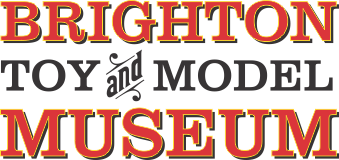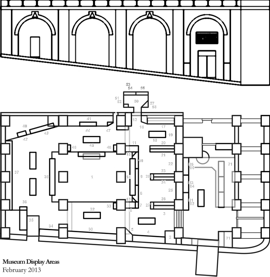Category:Elektrikit
| Toy Brands and Manufacturers |
|---|
Elektrikit |
| 1963 - |
Front cover of the Elektrikit manual, The Meccano Elektrikit Book of Models [image info]
Elektrikit, Meccano Ltd. catalogue, circa ~1962/1963 [image info]
Elektrikit (1963-) was a specialised add-on for Meccano sets that let owners experiment with electrical as well as mechanical principles. Elektrikit was arguably the successor to the 1920s Meccano_Electrical_Outfit.
Concept
While Meccano was good for building models that displayed mechanical engineering, a few more specialised parts would be needed if it was also to be used for demonstrating principles of electrical engineering (such as the use of commutators to switch electric lights on and off on fairground models). The purpose of Elektrikit was to provide those additional specialised parts, and guidance on how to use them.
Simple circuits
Today, the UK National Curriculum often teaches the principles of electricity and electronics using an electrically-insulating base-board with a grid of mounting positions, to which component strips can be clipped, screwed or otherwise fixed to create simple circuits. The same basic idea could be used with Elektrikit, which supplied an insulating baseboard punched with holes at Meccano spacings, to which the standard shiny silver nickel-plated Meccano strips could be screwed to demonstrate the principles of making and breaking electrical circuits. Standard Meccano parts could then be used to make screw terminals and switches, or more specialised parts such and knife switches or Morse code tappers.
Coils and electromagnetism
Elektrikit also provided connection wire and coil-winding wire, and winding formers that allowed users to wind their own electromagnets. A commutator part (an insulating Meccano wheel with conducting track laid out on one surface) let builders make a second electrical connection with a part mounted on a standard metal Meccano shaft, which could either be constant, or could switch on and off depending on the wheel position. The commutator part would then then let Elektrikit owners build full electric motors and generators, or use the commutator's switching to automate the switching of different sets of lights for a Meccano fairground model, or to use switched electricity as part of more complex Meccano automated mechanisms.
Parts
Since standard Meccano could be used for most of a model's structural parts, and unpainted strips and nuts and bolts could be used for parts that needed to carry electricity, one of the main purposes of Elektrikit was to provide additional insulating parts such as washers, girder, strips and wheels. The kit also included magnets, coloured lamps (red, yellow and green) and lamp-holders, wiper contacts, connection wire, a bell, wire, and other miscellaneous useful items, such as printed card dial-faces that could be used to build your own metering and monitoring systems, or as control dials.
Disappearance
Elektrikit had a comparatively unsuccessful run in the UK, and this is usually blamed on the set's packaging, which apparently didn't do enough to tell buyers that Elektrikit wasn't a stand-alone system, and needed to be used in connection with a decent-sized Meccano set in order to be able to make the models in the accompanying manual. This is supposed to have led to a certain amount of unhappiness as children unpacked their presents on Christmas Day and found that their exciting Elektrikit set didn't actually work unless their parents then bought a Meccano set to go with it.
The Elektrikit packs did have a fairly obvious piece of text on the front saying "THIS KIT IS DESIGNED FOR USE WITH A STANDARD MECCANO OUTFIT (No.3 or larger)", but "designed for use with" was a little vague ("requires" would have been better), and since the packaging didn't do a very good job of selling the kit, and didn't really explain what Elektrikit did or what it was for, some retailers who'd never really understood the kit or its purpose probably gave up on it altogether once disgruntled parents started returning the kits for refunds.
Mismarketing
Elektrikit's problems seemed to be down to a rare and uncharacteristic (and to some people, quite inexplicable) case of Meccano mismarketing a product. Elektrikit was a Meccano-dependent add-on accessory pack that appeared to be marketing itself as a separate brand, and although it was sold as being "made and guaranteed by Meccano Ltd.", the box didn't do enough to stress that this was essentially a Meccano extension pack, aimed squarely at people who were already Meccano owners. By rights, the packaging should have had MECCANO across the top of the box in huge letters, since its users were all expected to be Meccano owners.
Another strange anomaly was that, as well as not stressing that this was a Meccano expansion pack, the packaging also failed to give any real indication of what was in the box. Where other Meccano packs went out of their way to show Meccano in action, or (with later packaging) even to include clear windows in the box so that the gears and strips could be proudly displayed to potential owners, the marketing people seemed to give up on the idea of how one illustrated the "invisible" subject of electricity, and Elektrikit simply said "Elektrikit / For building electrical models", used a logo that looked like arcing electrical sparks, and showed an uninspired dark, black-on-red photograph panel of a piece of a a power distribution pylon. The promotional sheets that Meccano produced for shops to accompany the sets did show examples of devices built with Meccano and Elektrikit, but this wasn't a substitute for putting those images on the box.
It's not known quite how the UK marketing of Elektrikit went so badly wrong, but the reason probably stems from the fact that Elektrikit wasn't developed as an in-house product at Binns Road, Liverpool, but had already been sold by Meccano France. Meccano France treated their idea more sensibly, and produced self-contained sets that included the new parts along with the standard Meccano pieces required to make everything work. Perhaps since it wasn't "their baby", Binns Road either didn't fully understand the concept, or weren't sufficiently motivated to learn.
Legacy
Although the UK Elektrikit packs weren't an immediate success, some of the parts did appear in the later 4EL set in the 1970s, and the parts were eagerly seized upon by serious Meccano builders who could get hold of the parts though other channels, and who needed to build large electrically-controlled or lit models, and wanted to use real Meccano parts wherever possible for authenticity's sake.
See also:
External links
Pages in category ‘Elektrikit’
This category contains only the following page.
Media in category ‘Elektrikit’
The following 9 files are in this category, out of 9 total.
- Contents of Meccano Elektrikit (BEM 1963).jpg 1,600 × 1,309; 337 KB
- E2 and E3 switches, Meccano Elektrikit (BEM 1963).jpg 2,500 × 2,038; 614 KB
- E27 and E28 Voltmeters, Meccano Elektrikit (BEM 1963).jpg 2,500 × 2,048; 999 KB
- E34 Complete Morse Telegraph, Meccano Elektrikit (BEM 1963).jpg 2,500 × 2,041; 993 KB
- Electrikit (MCat ~1963).jpg 1,200 × 840; 224 KB
- Electrikit logo.jpg 1,600 × 563; 121 KB
- Meccano Electrical Parts, Elektrikit (BEM 1963).jpg 1,600 × 1,310; 291 KB
- Meccano Electrified, Meccano Electrical Outfit (MLCat ~1920).jpg 1,241 × 1,600; 623 KB
- Meccano Elektrikit Book of Electrical Models.jpg 1,024 × 835; 116 KB













